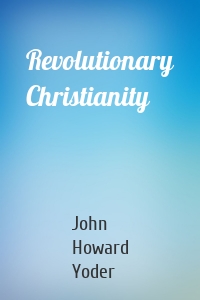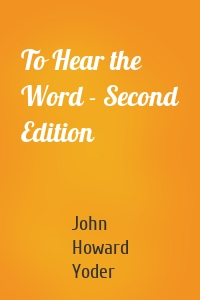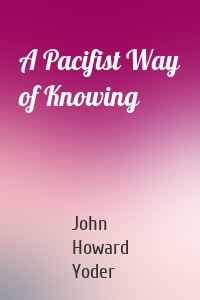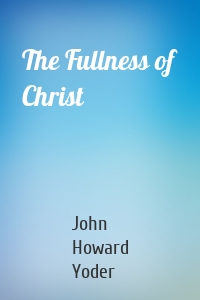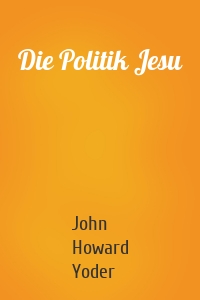John Howard Yoder
5 кн.
Revolutionary Christianity
The ambitious and accessible essays collected in this volume were presented by John Howard Yoder during an extensive visit to South America in 1966. Reflecting and also subverting the acknowledged «faddish» attempt to address the revolutionary nature of Christianity, these lectures provide an illuminating snapshot of Yoder's vibrant initial encounter with Latin American Christianity. In these lectures, he thematically addresses the shape of the free church, the Christian practice of peace,...
| Автор | John Howard Yoder |
To Hear the Word - Second Edition
"Of very few people can it be legitimately said that their work fundamentally reconfigured the landscape of two theological disciplines. But if there is anyone in recent memory who would be worthy of such an accolade, it is John Howard Yoder. The two disciplines are, of course, theological ethics and biblical studies–though Yoder would cringe at their separation, and his work was both explicitly and implicitly a prolonged exercise in maintaining their indissoluble union. For him, to hear...
| Автор | John Howard Yoder |
A Pacifist Way of Knowing
In A Pacifist Way of Knowing: John Howard Yoder's Nonviolent Epistemology, editors Christian Early and Ted Grimsrud gather the scattered writings of Yoder on the theme of the relationship between gospel, peace, and human ways of knowing. In them, they find the beginnings of a pacifist theology of knowledge that rejects strategies of empire while at the same time avoids a self-defeating relativism.
| Автор | John Howard Yoder |
Die Politik Jesu
Yoders Klassiker wurde von «Christianity Today» auf Platz 5 der 100 wichtigsten theologischen Bücher des 20. Jahrhunderts gesetzt. Kein Wunder, dass Autoren wie N. T. Wright, Shane Claiborne oder Brian McLaren davon inspiriert sind. Es wurde in zwölf Sprachen übersetzt und über 100.000 mal verkauft. «Zu meiner ersten literarischen Begegnung mit Yoder kam es, als ich mich intensiver mit christlicher Friedensethik beschäftigte. Einige meiner Überzeugungen hat Yoder erschüttert – mit Sätzen wie...
| Автор | John Howard Yoder |


